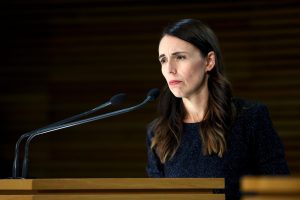
Prime Minister Jacinda Ardern
New Zealand Prime Minister Jacinda Ardern, a global figurehead of progressive politics, shocked the country. She was re-elected for a second term in 2020, the victory buoyed by her government’s “go hard and go early” approach to the Covid-19 pandemic, which saw New Zealand impose some of the world’s strictest border rules, separating families and shutting out almost all foreigners for almost two years. Ardern won international acclaim for her empathetic handling of the 2019 Christchurch mosque massacre, in which 51 Muslim worshippers were killed and another 40 wounded.
Buy Prime Test Series for all Banking, SSC, Insurance & other exams
Ms. Ardern had faced a tough election campaign this year. Her Liberal Labour Party won re-election two years ago in a landslide of historic proportions, but recent polls have put her party behind its conservative rivals. She was lauded globally for her country’s initial handling of the coronavirus pandemic after New Zealand managed for months to stop the virus at its borders. But its zero-tolerance strategy was abandoned once it was challenged by new variants and vaccines became available.
Why this decision has been taken?
- Ms Ardern’s resignation comes not long after she saw support for her party decreasing, with polls conducted last November showing only 33 per cent of respondents in support of Labour.
- Ms Ardern’s approval rate also dropped, down to 29 per cent, which was the lowest since 2017, just before she was elected prime minister.
- In her campaign, she had pledged to tackle New Zealand’s housing problems with a program called Kiwibuild in which 100,000 affordable homes were to be built.
- But by July last year, only about 1,300 homes had been constructed, with another 1,200 underway, according to the NZ government.
- Ms Ardern also had to deal with New Zealand’s child poverty rate, which although declining remains higher than rates in comparable European countries, especially for single-parent families.
- Another issue that the country has been dealing with is the fallout of the pandemic and surging inflation.
- Political analysts had earlier predicted that the 2023 elections would be very close, and mainly focused on the economy, inflation and equality.
You may also read this:
- New Zealand Supreme Court Rules Voting Age of 18 is Discriminatory in the Country
- New Zealand’s Greg Barclay unanimously re-elected as Chairman of ICC for 2 year
Important takeaways for all competitive exams:
- New Zealand Capital: Wellington;
- New Zealand Currency : New Zealand dollar.




 Which District is known as the Medical C...
Which District is known as the Medical C...
 Which was the First Women's University i...
Which was the First Women's University i...
 L&T Vyoma to Study 250 MW Green AI D...
L&T Vyoma to Study 250 MW Green AI D...








